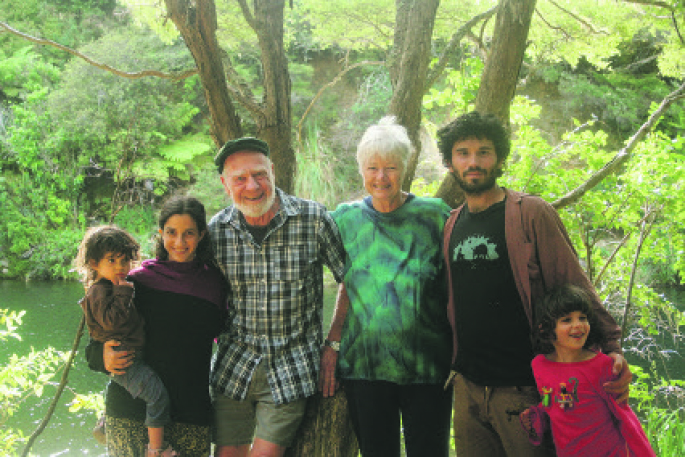New Zealand’s economic basis has to shift if we want a sustainable future according to Thames farmer and former Green Party co-leader Jeanette Fitzsimons – and that will mean a spotlight on dairy farmers.
“The dairy industry has outgrown its ecological limits in terms of soil, water and greenhouse gas emissions,” she says, “but it could be different. There are solutions but farmers and Fonterra don’t seem very interested.”
She cites the work of agri-ecologist Alison Dewes and economist Peter Fraser who have investigated Ministry of Primary Industries (then MAF) policy work from 2008, showing 250,000 cows could be removed from Waikato and “no one would notice” – according to Statistics NZ there were 1,761,949 dairy cows in the Waikato in 2015.
“Waikato cow numbers could drop by 20 per cent and farmers would be more profitable,” says Jeanette. “There would be no need to import the palm kernel that makes milk a marginal product. Animals could be fed on grass and fodder and, because there are fewer per hectare, they would be healthier, happier and so produce more milk.
“Costs go down and income goes up. Dairy farmers are locked into ‘if 300 cows are good, 400 will be better’, but that’s not the case.”
Fonterra protest
Earlier this year, the 72-year-old was among those who chained themselves to the gates of Fonterra’s Clandeboye dairy factory in south Canterbury, the group also blocking the drive with woodchips.
“The woodchips were to say, ‘you could be using this’ and drawing attention to Fonterra being this country’s second-biggest user of coal. Why do they have coal-fired dairy plants when they claim to be improving their practices?”
Offering solutions to the country’s issues is the focus for the ‘Paved with Good Intentions’ panel at the Tauranga Arts Festival on Sunday, October 29 whre Jeanette, business commentator Rod Oram and economist Shamubeel Eaqub will be quizzed by Radio New Zealand’s Guyon Espiner.
Jeanette is also one of six speakers who, on October 28, will individually address the topic ‘Our Place to Stand’ about what it means to be a New Zealander and the wider notions of turangawaewae.
She has tried to live by green principles since 1972 after reading a book sent to her by a friend, ‘The Consumer’s Guide to the Protection of the Environment’.
“I couldn’t advocate for anyone to live like this without having done it myself; that’s really important to me.”
Off-the grid living
Jeanette and husband Harry Parke live off-grid on 87ha near Thames, although she laughs that it was only the cost of getting electricity to the house that made them turn to alternative energy sources.
Pakaraka Farm is now half-owned by permaculture teachers Niva and Yotam Kay, who run an organic market garden and hold regular classes there.
“It’s what you do when you have land but no children to take it over and you don’t want it sold,” she says of the sale. “It’s an agreement in perpetuity between the two families so if my son in Wellington wants to come here when he’s retired, he can.
“We have three generations living on the farm now and that’s how we like it.”
Jeanette Fitzsimons appears in Our Place to Stand (October 28) and with Rod Oram and Shamubeel Eaqub in Paved with Good Intentions (October 29). Tickets from Baycourt or Ticketek. TECT cardholder discounts apply until October 6 (Baycourt only). www.taurangafestival.co.nz



0 Comments
Leave a Comment